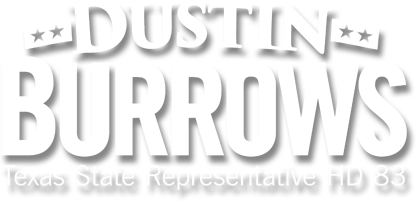HB 2 PROPERTY TAX LEGISLATION
Filed January 31, 2019
The Speaker, Lt. Governor, and Governor jointly agree that property tax reform is an important issue for the legislature to address this session. While the legislature does not set–or collect–property taxes, the legislature is still responsible for ensuring the property tax system is fair, transparent, and accountable.
HB 2 by Burrows, like its identical companion in the Senate, starts the House down the path in accomplishing meaningful property tax reform. As filed, HB 2 includes provisions intended to increase transparency in the property tax rate calculations; make it easier for property taxpayers to navigate the appraisal review board process; and empower citizens to have a direct say in significant increases in property tax rates.
Now that the legislation is filed, it will work its way through the legislative process, with members and stakeholders being able to weigh in on its various concepts and the manner in which those goals are addressed.
Overview of HB 2 as filed
- Transparency.
- The current notification requirements for property tax rates are complex and difficult for the lay person to understand.
- HB 2 modifies the process by which taxing jurisdictions set property tax rates by strengthening the notification provisions prior to jurisdictions adopting rates, and by making the changes easier to comprehend.
- Reforming the Appraisal Review Board process.
- Taxpayers protest their property tax values to the Appraisal Review Boards, which frequently are the last stop in the protest process.
- HB 2 seeks to make these hearings more taxpayer friendly by modifying how the notices of hearings are given, and changing the times in which taxpayers may appear before the board, among other modifications.
- Rollback rates.
- The “no-new-revenue tax rate” as set forth in HB 2 (currently the “effective tax rate”) is the property tax rate in the current year that would raise the same revenue for the taxing jurisdiction as the previous year on property that is taxable in both the current tax year and the preceding tax year, given the current year’s property values. The rollback rate is the amount of increase above the no-new-revenue tax rate a jurisdiction may increase property tax rates without a vote to limit the property tax rate growth.
- HB 2 as filed changes the rollback rate from 8% to 2.5% for all taxing districts with more than $15 million in combined property and sales tax revenue.
- Voter engagement.
- Under current law, if a property tax jurisdiction sets the current year’s property tax rate higher than the rollback rate, voters may petition the jurisdiction to hold a rollback election to cap the tax rate increase at the rollback rate.
- As filed, HB 2 would change this election to a ratification election, giving voters the power automatically to vote on a property tax rate increase that exceeds the rollback rate.

